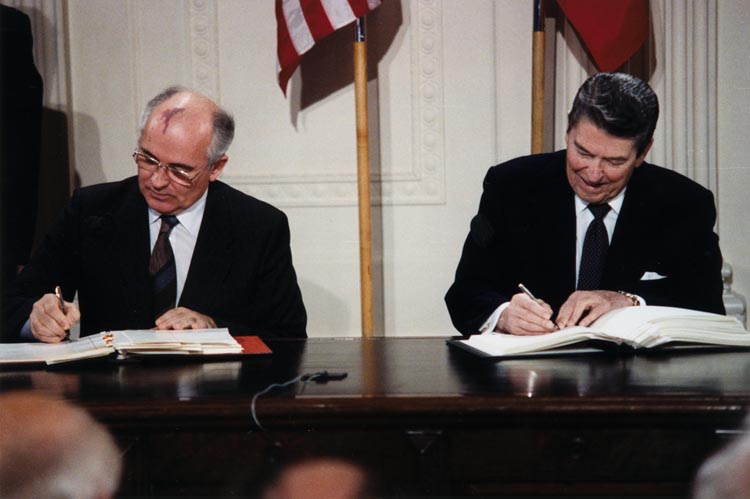
The INF was a successful treaty, in that it was fully implemented. … [and it was] intended not to be easy to pull out
The Intermediate-Range Nuclear Forces Treaty (also known as INF) has garnered significant attention in the latter half of 2018 as President Trump announced that the US would withdraw from it. But before then, the INF was rather obscure and not well known. Thus, A BETTER PEACE explores the history of the INF and the controversies and implications of withdrawing from it in a two-part podcast series.
This release is the first, in which we welcome Grace Stettenbauer, a former State Department Foreign Service Officer and former instructor at the Army War College. She had experience with the verification and monitoring processes involved in the INF in the early days of the treaty. In her conversation with U.S. Army War College Professor of Strategy Jacqueline E. Whitt, she explains what the INF was about and what was desirable and undesirable about it.
Podcast: Download
Grace Stettenbauer is a former foreign service officer and former faculty member of the U.S. Army War College. Jacqueline E. Whitt is Professor of Strategy at the U.S. Army War College. The views expressed in this podcast are those of the speakers and do not necessarily represent those of the U.S. Army War College, U.S. Army, or Department of Defense.
Photo: President Reagan and General Secretary Gorbachev signing the INF Treaty in the East Room of the White House, 1987.
Photo Credit: Ronald Reagan Presidential Library, public domain




